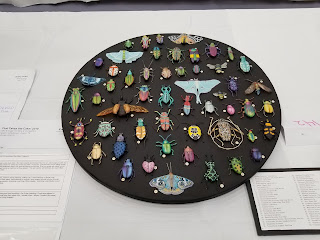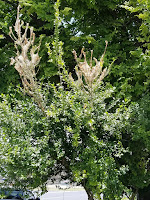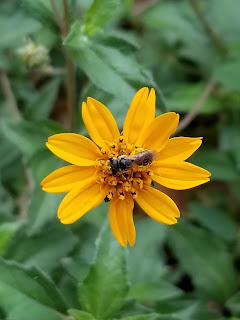While the event took place way back in February, I've been wanting to write about it and I'm just now getting to it. So why in the world would I, who blogs about bugs, be writing about a cake show? Those who really know me, know that I love to bake....and I love to eat what I bake.....
I also love watching shows about baking- Great British Baking Show, anyone? I used to be obsessed with Food Network's Cake Challenge shows and had a deep amazement for Colette Peters, Bronwen Weber, and Mike McCarey. Another fun diversion I have to indulge all things baking is the annual cake show that happens in Round Rock. I used to drag my husband along with me, and have taken the boy on a couple of occasions, but decided the past two years that I enjoy the show best when I go by myself. That provides me with the opportunity to spend as much time as I want ogling items.
 So all this is leading up to the 2018 show which was themed "Science of Cake". Could it possibly be any more perfect for me? The answer would be no, it could not. So I went and totally geeked out on baked goods with a science theme. My absolute by far favorite piece was a display by Sara Weber of Sara's Sweets.
So all this is leading up to the 2018 show which was themed "Science of Cake". Could it possibly be any more perfect for me? The answer would be no, it could not. So I went and totally geeked out on baked goods with a science theme. My absolute by far favorite piece was a display by Sara Weber of Sara's Sweets.Y'all, she did an entomological display. Let me repeat....chocolate cookie bug bites!! I fell in love with them instantly. The display was so great and right on theme as it looked like it was pulled from a museum. She even had a card that told what the insects displayed were! So Sara, here's to you and the endless hours you most likely spent crafting your delectable cookie bugs. This entomologist is forever a fan!










